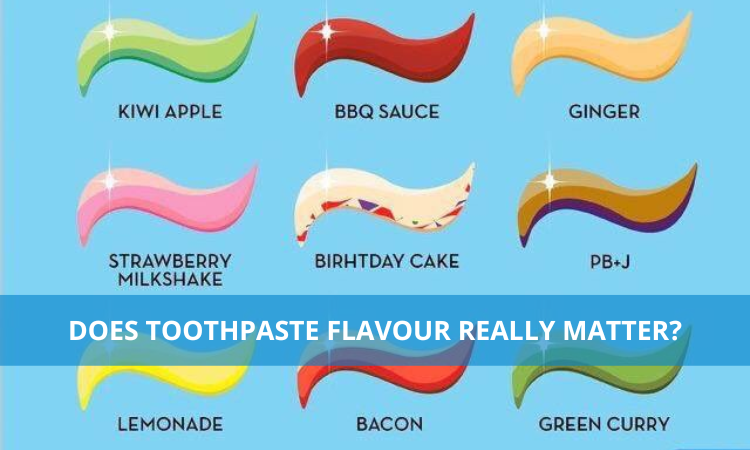
Prepare to reconsider the flavour of your toothpaste. Examine the intriguing influences of well-known flavours on your mouth hygiene practises and taste preferences.
A vital component of our everyday oral hygiene regimen is toothpaste. To brush our teeth and refresh our breath, we all use toothpaste. But have you ever given your toothpaste's flavour any thought? Does the flavour of your toothpaste actually matter, or is it just a question of taste? Let's look more closely.
The Study of Taste
We must comprehend the physics of taste in order to comprehend why toothpaste flavour matters. Our taste buds can distinguish between five basic tastes: sweet, sour, bitter, salty, and umami (savory). For instance, sweet tastes can signal that a food is high in energy, while bitter tastes can suggest that a dish may be dangerous. Sour tastes can warn us of the presence of acidic chemicals, and salty tastes assist us in maintaining the fluid equilibrium in our bodies.
What about the flavours of toothpaste? Well, there are four basic types of toothpaste flavours: Herbal, fruity, minty, and spicy. These flavours can all have distinct effects on our taste buds and even on how we take care of our teeth.
Minty Toothpaste
The flavour of toothpaste that is most frequently used is mint. Menthol, a substance found in mint, provides a cooling impact on the mouth. Our breath might become fresher thanks to this sensation, which also makes our mouths feel clean and energising. That's not all, though. Also, the mild analgesic properties of mint toothpaste may aid to relieve any small toothaches or gum troubles. Moreover, the flavour of mint might aid to cover up any unfavourable aftertastes from food or beverages.
Fruity Toothpaste
Though less popular than mint tastes in toothpaste, fruity varieties like strawberry and orange nevertheless have supporters. Children or anyone who dislikes the harsh, menthol taste of mint may find these flavours intriguing. It's crucial to remember that compared to mint toothpaste, fruity toothpaste may include more sugar or artificial sweeteners. Someone who has a sweet tooth or is trying to limit their sugar intake may find this to be difficult.
Spicy Toothpaste
Spicey toothpaste tastes like cinnamon or clove are even less common. Anyone who likes a little spice or who wants to try something new may find these flavours to be interesting. Similar to minty toothpaste, spicy toothpaste flavours can also have a light analgesic effect. They might not be the ideal option for everyone because they can irritate sensitive gums or teeth.
Herbal Toothpaste
Herbal toothpaste has gained popularity in recent years. These toothpastes frequently include organic components like chamomile, aloe vera, or tea tree oil. These components are supposed to be able to relax and heal the mouth, as well as improve breath and stop tooth decay. Although there isn't much scientific proof that herbal toothpaste works, many people find that they prefer the scents and substances that are naturally occurring. However, it should be noted that these toothpastes could not offer as much cavity protection as conventional toothpastes.
Conclusion
Does the flavour of toothpaste actually matter? Both yes and no, is the answer. The flavour of your toothpaste ultimately comes down to personal preference. Yet, various flavours might affect your taste buds and oral hygiene practises in different ways. The menthol in toothpaste gives off a fresh, clean feeling that you can appreciate if you favour a minty toothpaste. But be aware of any additional sugars or sweets if you like a fruity toothpaste. Enjoy the distinctive flavour if you want a spicy toothpaste, but take caution if your teeth or gums are sensitive. Finding a toothpaste that you love using and that promotes the health of your teeth and gums is ultimately what matters the most. Happy brushing!

Dr Amna Bilal
The author is a contributing writer at Dental News Pakistan and can be reached at amna0795@yahoo.com

